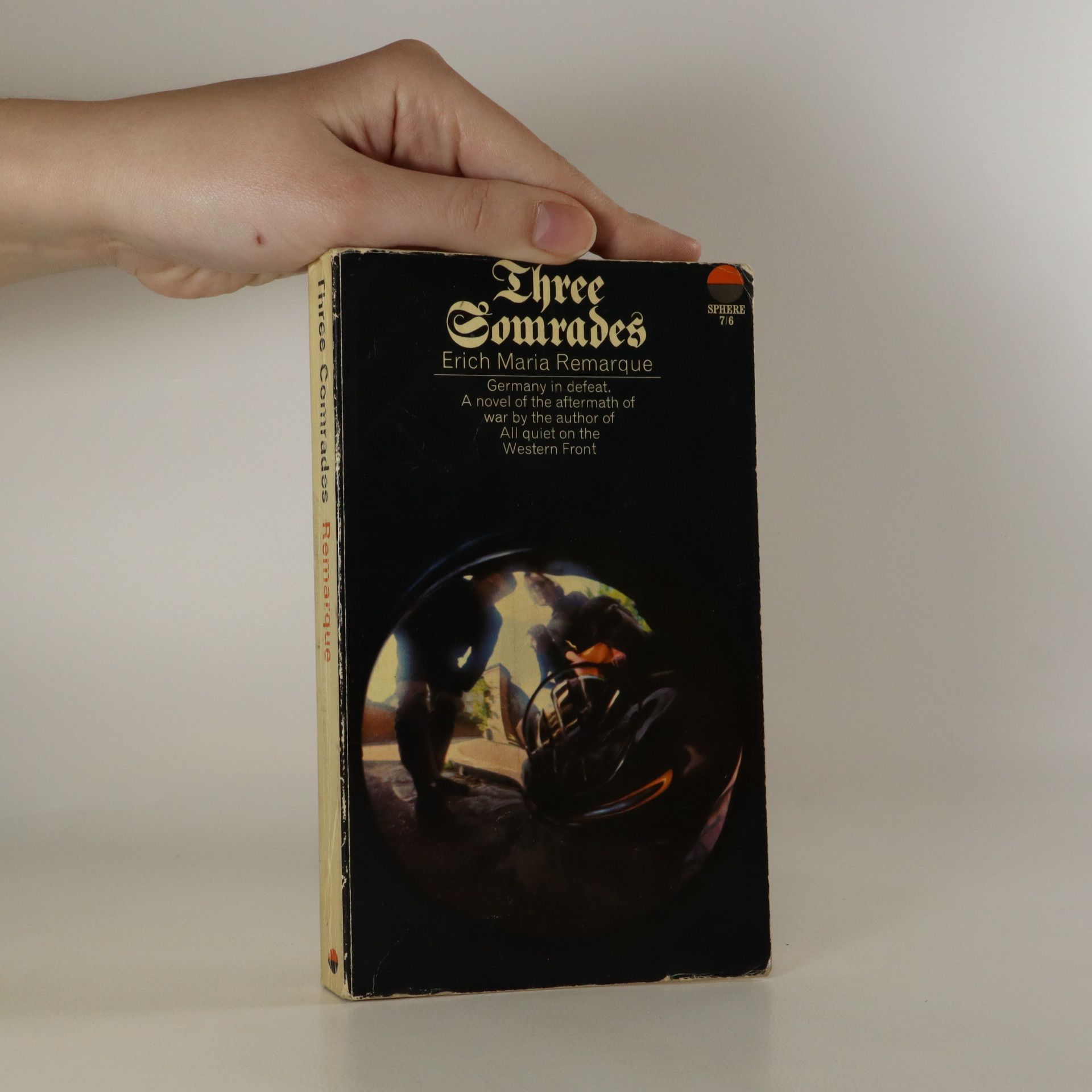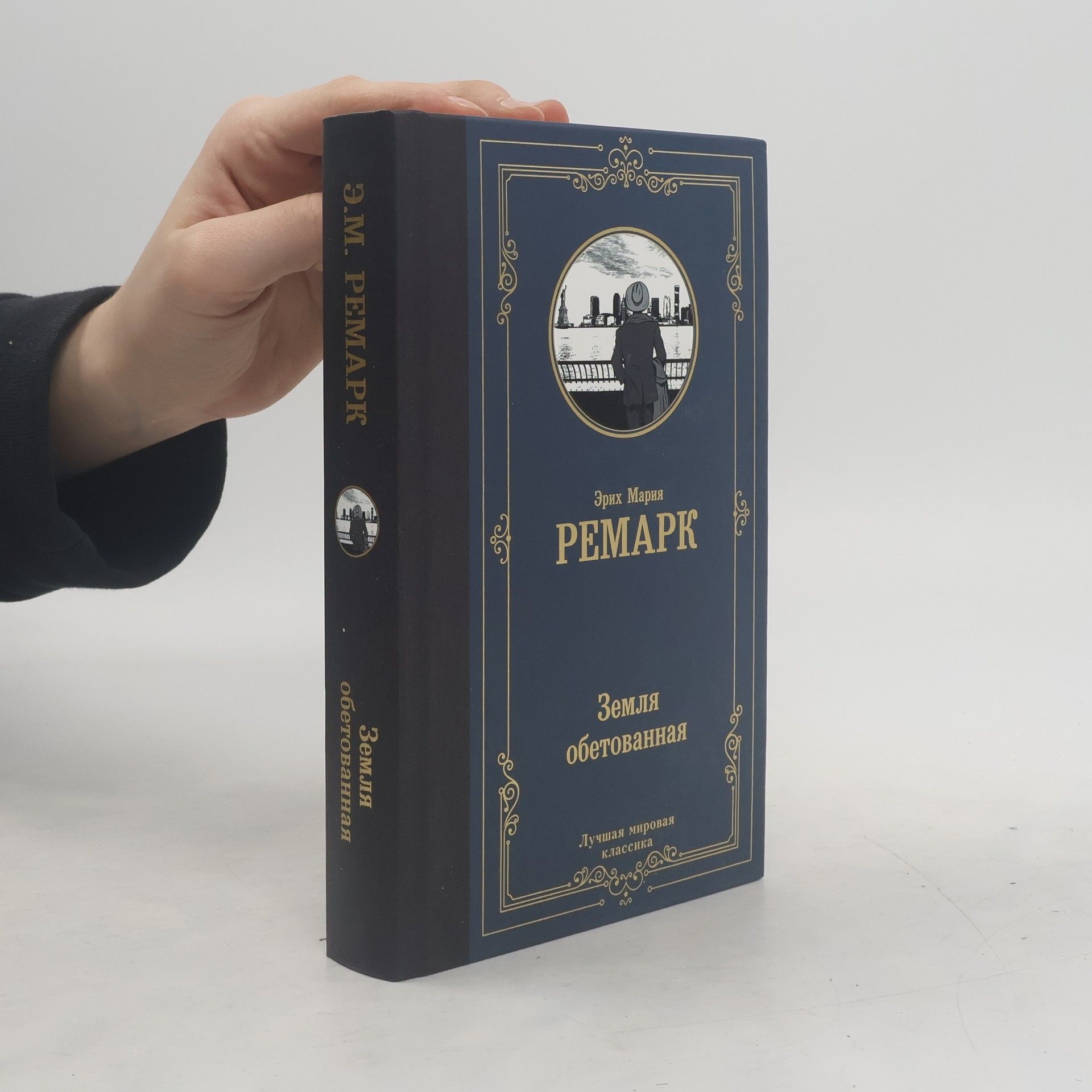Set against the backdrop of World War I, the narrative follows a group of German schoolboys who, inspired by their schoolmaster's rhetoric, eagerly enlist, only to confront the brutal realities of trench warfare. The story captures the profound disillusionment and horror faced by a young soldier, highlighting the stark contrast between youthful idealism and the grim truths of battle. This poignant anti-war novel remains a powerful testament to the devastating impact of war, as articulated through Remarque's evocative prose.
Erich Maria Remarque Book order (chronological)
Erich Maria Remarque stands as one of the most recognized and widely read German literary figures of the twentieth century. His work is profoundly shaped by his life experiences, marked by the tumultuous history of Germany, from his youth in imperial Osnabrück through World War I and into his exile. Remarque's novels offer a critical examination of German history, consistently centering on the preservation of human dignity and humanity amidst oppression, terror, and war. His distinctive voice and the urgency of his themes continue to resonate with readers globally.







Noc v Lisabone, 2. vydanie
- 280 pages
- 10 hours of reading
Noc v Lisabone, ktorá vychádza v novom vydaní, patrí k Remarquovým najznámejším dielam. Podobne ako v ostatných autorových románoch s tematikou druhej svetovej vojny aj v nej pred čitateľom ožíva vzrušujúci a napínavý príbeh nemeckého emigranta, ktorý po strastiplných zážitkoch vo fašistickom Nemecku v roku 1942 rezignuje a vzdáva sa poslednej nádeje na záchranu. Pod vplyvom tragédie, čo v ňom uhasila i tú najmenšiu iskierku nádeje, prepúšťa v Lisabone svoj pas a lodné lístky do Ameriky inému zúfalcovi, takisto emigrantovi, s ktorým sa stretol na lisabonskom nábreží. Nechce za to peniaze ani nijakú inú odmenu, žiada len jedno: aby s ním strávil jedinú noc a vypočul si smutný príbeh jeho lásky a života v jednom z najpohnutejších období ľudskej histórie.
Чорны абеліск
- 395 pages
- 14 hours of reading
The Road Back: A Novel (All Quiet on the Western Front)
- 264 pages
- 10 hours of reading
Set in the aftermath of World War I, this novel explores the gradual healing and restoration of Europe. It delves into the struggles and resilience of individuals as they navigate the challenges of rebuilding their lives and societies. As a sequel to All Quiet on the Western Front, it continues to address themes of loss, recovery, and the impact of war on the human spirit, providing a poignant reflection on the journey towards peace and normalcy in a war-torn continent.
Ostatnia powieść Remarque'a wydana za życia autora. Początek drugiej wojny światowej. Wrogowie Trzeciej Rzeszy muszą jak najszybciej uciekać z Europy, lecz większość dróg ucieczki jest już zamknięta. Akcja powieści rozgrywa się pewnej nocy w Lizbonie, ostatniej bramie do wolnego świata. Stojący w porcie uciekinier bezsilnie wpatruje się w statek, który następnego dnia ma popłynąć do Ameryki. Jego na nim nie będzie. Nagle jednak podchodzi do niego człowiek, który chce mu oddać swoje bilety na ten rejs. Pod warunkiem, że wysłucha jego opowieści Noc w Lizbonie to ostatnia powieść Remarque'a wydana za jego życia autora i jeszcze jeden dowód jego wielkiego talentu narracyjnego.
Жизнь взаймы
Уникальная методика обучения языку В. Ратке
Это - красивейший из европейских романов XX века. Роман о любви, войне и смерти. Это - печальнейший из европейских романов XX века. Роман о женщине, у которой нет ничего, кроме жалких сиюсекундных побед, - и о мужчине, привыкшем к страху, ненависти и безнадежности, как к своему второму "я". Это - "Триумфальная арка". Роман о страсти, что может и должна завершиться лишь трагедией.
Station am Horizont. Roman
- 320 pages
- 12 hours of reading
Die große Remarque-Edition schließt mit seinen frühen Romanen ab. „Station am Horizont“ erzählt von Kai, einem Lebemann und Rennfahrer, und thematisiert Männerfreundschaft, Rivalität und Ruhelosigkeit in einer verwöhnten Gesellschaft. Der Roman verbindet Liebesgeschichte, Gesellschaftsleben und Autorennen und zeigt interessante Verbindungen zu späteren Werken.
Ostatnia powieść Remarque'a wydana za życia autora. Początek drugiej wojny światowej. Wrogowie Trzeciej Rzeszy muszą jak najszybciej uciekać z Europy, lecz większość dróg ucieczki jest już zamknięta. Akcja powieści rozgrywa się pewnej nocy w Lizbonie, ostatniej bramie do wolnego świata. Stojący w porcie uciekinier bezsilnie wpatruje się w statek, który następnego dnia ma popłynąć do Ameryki. Jego na nim nie będzie. Nagle jednak podchodzi do niego człowiek, który chce mu oddać swoje bilety na ten rejs. Pod warunkiem, że wysłucha jego opowieści… Noc w Lizbonie to ostatnia powieść Remarque’a wydana za jego życia autora i jeszcze jeden dowód jego wielkiego talentu narracyjnego.



